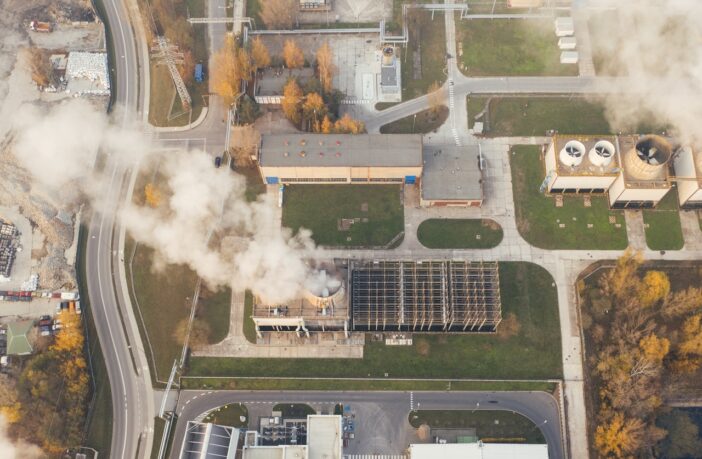Earlier this week UK Prime Minister Boris Johnson announced ambitious plans to legislate to reduce national carbon emissions 78% by 2035.
The plan follows advice from the Climate Change Committee’s which published the Sixth Carbon Budget at the end of last year.
It sees the UK aiming to deliver a 78% reduction by 2035 on the road to its overall goal of net-zero.
Interestingly for the first time the plans include the UK’s contribution to international aviation and shipping emissions. These have traditionally been left out of the plans much to the ire of environmental pressure groups.
With GOP26 in Glasgow later this year and the UK hoping to take a lead in climate change action Boris Johnson said: “We want to continue to raise the bar on tackling climate change, and that’s why we’re setting the most ambitious target to cut emissions in the world.
“The UK will be home to pioneering businesses, new technologies and green innovation as we make progress to net-zero emissions, laying the foundations for decades of economic growth in a way that creates thousands of jobs.
“We want to see world leaders follow our lead and match our ambition in the run-up to the crucial climate summit COP26, as we will only build back greener and protect our planet if we come together to take action.”
So what’s going to help the UK on its way? There are plans that the government can make that they know will impact emissions if they and the companies stick to their targets. The remainder of the progress will require behaviour change including electric vehicle adoption, reducing demand for flights and red meat etc
Yet changing consumer behaviour is not something governments are keen to legislate on.
Here are the ways in which a reduction in carbon emissions might be achieved.
1 Covid19 – A global pandemic probably wasn’t much in the thoughts of environmental global planners back in early 2020, but one side effect of the rise of Covid19 has been an estimated 10.7% reduction in carbon emissions in 2020. Other figures have the global figure as anything from 5-12%.
The impact of the pandemic will be felt for some while yet. If the virus mutates and current measures – such as limits on travel, working from home etc remain in place – then carbon emissions are likely to fall each year in an organic way. Even if Covid19 recedes the changes that have occurred in society will continue to give the country and indeed the government a carbon emissions bonus. A drop in commuting and business travel could well have a significant impact on emissions figures.
2 More sustainable energy – Already the UK is seeing the benefits of its commitment to wind power, This renewable and low carbon form of energy, which accounts for between 30% and 50 percent of UK energy depending on the day and weather conditions, has already created an opportunity for the government to be less reliant on oil and gas. Though recent government plans for the energy sector, which were widely criticised by green groups showed that high-carbon energy sources will remain part of the mix for some time to come. Overall UK electricity production must reach net-zero by 2035, in line with the National Grid ESO’s vision.
One way to achieve this is by encouraging consumers to ‘green their homes by focusing on renewable energy solutions and improving insulation. The government has however recently received a great deal of flak from the green community for canning the Green Home Grant scheme.
Matt Clemow, CEO of Igloo Energy, the integrated home energy group, said: “While many people want to play their part in tackling the climate crisis, cost is the main barrier holding them back. Green home renovations can run into thousands of pounds, yet the Government has just scrapped the only initiative to help fund the up-front costs. If the Government is serious about speeding up cuts to carbon emissions, it can’t just be left to private companies to fill the funding void.
3 Sustainable transport – There is an obvious structural change that the government can make here. In line with global trends the budget stipulates that all new cars, and vans need to be zero-carbon in operation by the early 2030s.
Yet once again the government might be relying on changing behaviour to reduce overall carbon emissions. A fall in car ownership, the growth of active transport (especially as government and local authorities institute low traffic areas) could play a significant part.
By 2035 it is possible that many journeys in urban areas will be undertaken either on electric bikes and scooters or via driverless electric cars which are summoned Uber-style by consumers.
4 Changes in diet – An Oxford University study, published in the journal Climatic Change, highlighted that meat-eaters are responsible for almost twice as many dietary greenhouse-gas emissions per day as vegetarians and about two and a half times as many as vegans. Fortunately for the UK the country has been a leader in the shift away from meat and dairy products to a plant-based diet. Yet there are no guarantees that the rise of both veganism and flexitarianism will continue. The government may face a tricky dilemma at some point in encouraging Britons to eat less red meat and dairy products yet at the same time having to compensate and find new work for producers.
The magic bullet could well be the rise of cultured, also known as lab-grown meat, which is likely to be widely available within five years. If widely adopted this would deliver significanmt carbon bonuses to not just the UK but countries across the globe as well as stemming the growing rise in demand for meat and dairy in countries like China and India.
5 Changing economic expectations – Traditionally the key driver for governments has been economic growth. This might now have to change. Delivering the UK’s 2050 net-zero target will apparently cost between 0.5% and 1% of GDP.
Two years ago this would have sounded like a seismic shift. However, the twin impact of Covid19 and Brexit have caused the UK economy to slow by as much as 9.9%. Perhaps one bi-product of the pandemic is that it will reboot growth expectations of growth across the globe.
6 Businesses playing a role – Ironically the last Davos before the pandemic was dominated by climate change as business leaders across the globe encouraged executives to consider purpose as well as profit. Covid has clearly stalled this to some degree, but the pressure on businesses to ‘do their bit’ won’t go away. Survey after survey highlight show consumers are seeking ‘ethical’ business and their pressure might be about a sea-change in board rooms.
In the short term carbon offsetting might provide a useful route for some businesses to enhance their green credentials.
Vaughan Lindsay, CEO of ClimateCare, argues “It’s encouraging to see the UK Government has ramped up its climate ambition and acknowledge the vital role of offsetting emissions through tree planting and carbon removal technologies to meet Net Zero. However, as always, the devil will be in the detail. The UK was already behind on its target to achieve Net Zero by 2050, so we are all going to need to make some very radical changes to turn this ambition into a reality.
In our view, there will be increasing pressure on all businesses (of all sizes) to step up and deliver their own Net Zero positions. We strongly recommend organisations do that ahead of the curve. Taking action today will allow businesses to decide their own course – meeting carbon reduction and compensation targets in a way that makes sense for their business and in line with their ethos.”
Conclusion
Ultimately then the targets are a call for all of us, businesses, consumers as well as governments to play a role.
COP26 President-Designate Alok Sharma, said: “This hugely positive step forward for the UK sets a gold standard for ambitious Paris-aligned action that I urge others to keep pace with ahead of COP26 in Glasgow later this year. We must collectively keep 1.5 degrees of warming in reach and the next decade is the most critical period for us to change the perilous course we are currently on.
“Long term targets must be backed up with credible delivery plans and setting this net-zero focused Sixth Carbon Budget builds on the world leading legal framework in our Climate Change Act. If we are to tackle the climate crisis and safeguard lives, livelihoods and nature for future generations, others must follow the UK’s example.”
Yet as Friends of the Earth climate campaigner Connor Schwartz warns words have to be backed up by ongoing action
“Targets for cutting emissions are important, but without the right policies, they won’t be met. The UK government is already struggling to meet its existing, less ambitious climate goals.
“Boris Johnson’s government may want to show global leadership ahead of this year’s crucial climate summit, but with its backing for new roads and airport expansion, and huge financial support for a mega gas development in Mozambique, it won’t be taken seriously.”
Photo by Marcin Jozwiak from Pexels




